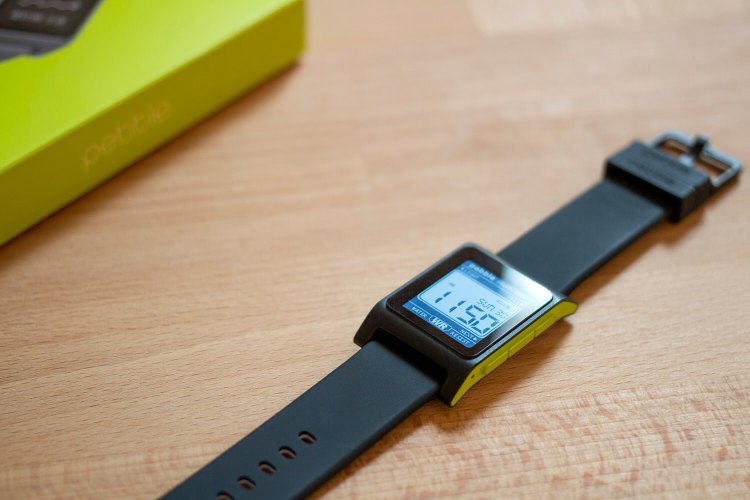Back in more optimistic times, Pebble CEO Eric Migicovsky insisted that the arrival of the Apple Watch was actually going to be good for business.
Never mind that the world’s most valuable company — with almost limitless resources — had landed smack in the middle of his market. No. Migicovsky argued, as entrepreneurs in similar positions always like to do, that the entrance of a massive competitor would validate the space and lift all boats on a tide of enthusiasm for smartwatches.
“I’m sure it’s actually helped us in a lot of ways,” he said to the U.K. Telegraph in 2015 about Apple Watch. “A couple of per cent of our users, the super-early adopters, have shifted and moved over to Apple Watch, but that amount is tiny. With Apple, if [there’s] anything they’re consistent with, it’s their message. They’re focused on that high-end approach, and I think they’re just as confident in that as we are with our Swatch-like approach to the market.”
Well, no. This week, Pebble unceremoniously announced it was completely shutting down, with Fitbit hiring some Pebble employees and buying some scraps of the company for an undisclosed amount of money. It was a worse ending than the one rumored just a few days earlier when talk emerged that Fitbit might pay $40 million for Pebble.
From its Kickstarter roots, Pebble had never been a ginormous seller in the world of wearables. But it had the position of being a kind of trailblazer, and the underdog, which is a sympathetic combination in Silicon Valley.
Eventually, however, reality bit. According to data from Slice Intelligence provided to VentureBeat, the company managed just 1.1 percent of all wearable sales for the month of November, down 1.9 percent from the same month a year ago.
According to Slice, holiday season sales of the overall wearable market are up 10 percent compared to this point last year. Apple is leading the pack, with 57.8 percent of all wearable sales in November 2016. That’s up from 40 percent market share for November 2015 and is no doubt thanks to the introduction of Apple Watch 2 at end of Q3 in September.
In September, Apple actually saw its wearable market share surge to 77.6 percent, though it has steadily cooled since then. But that allowed the company to take the market share lead back from Fitbit, which fell to 12.8 percent in September. Fitbit has climbed back up to 25.8 percent for the month of November, still down from the 39.7 percent it had in November 2015.
According to Slice, Apple was helped by its Black Friday sales, the new version of the Apple Watch, and the new Nike edition.
In a comment to Reuters, Apple CEO Tim Cook also insisted Apple Watch 2 was off to a great start: “Sales growth is off the charts. In fact, during the first week of holiday shopping, our sell-through of Apple Watch was greater than any week in the product’s history. And as we expected, we’re on track for the best quarter ever for Apple Watch.”
Cook’s remarks were in response to an IDC report that noted Apple Watch sales were down 70 percent during the third quarter, compared to the previous year. That’s not a huge surprise, since anyone interested in an Apple Watch was likely waiting for one of the new ones that were only on sale for a couple of weeks in that quarter.
As always, the holiday quarter will be the real test, and so far Apple clearly has reasons to be optimistic.
But for now, it seems the newer versions of the Pebble smartwatch just weren’t going to find any oxygen to compete against Apple Watch. And with few resources to invest in research and development, Pebble was probably only going to fall further behind.
Goliath snuffed out David. And now, with Android-based smartwatches on life support, it seems Apple could well have the smartwatch market to itself. It’s biggest competition is really with itself now, and its ability to deliver a product that will entice mainstream users in larger numbers.


